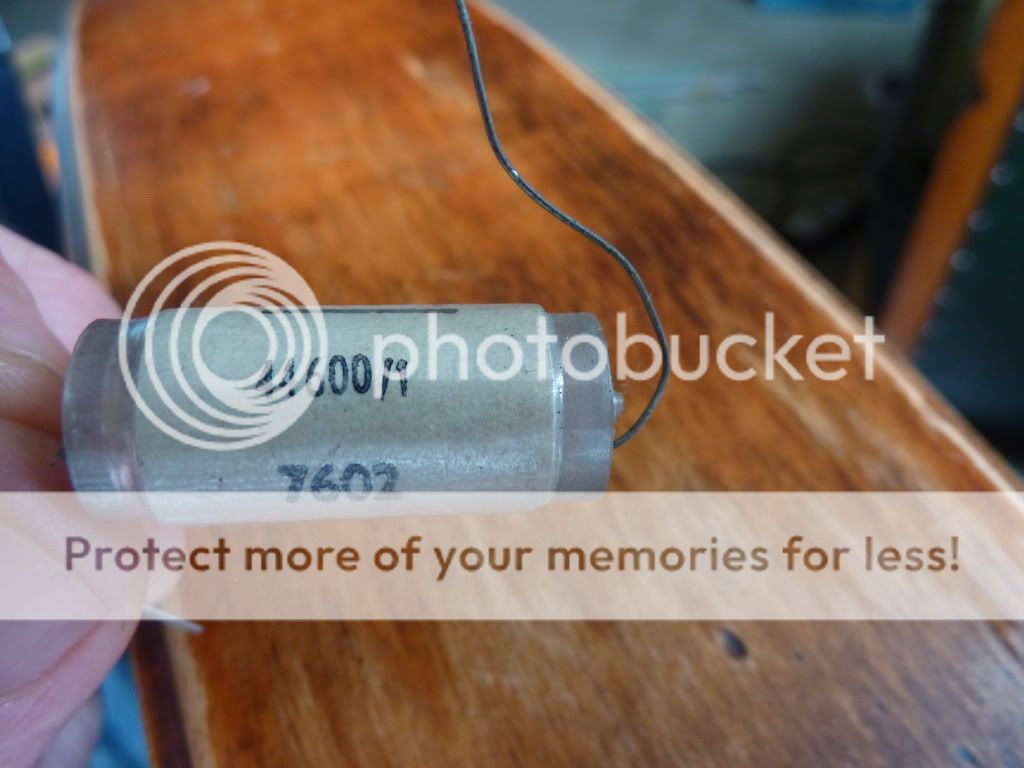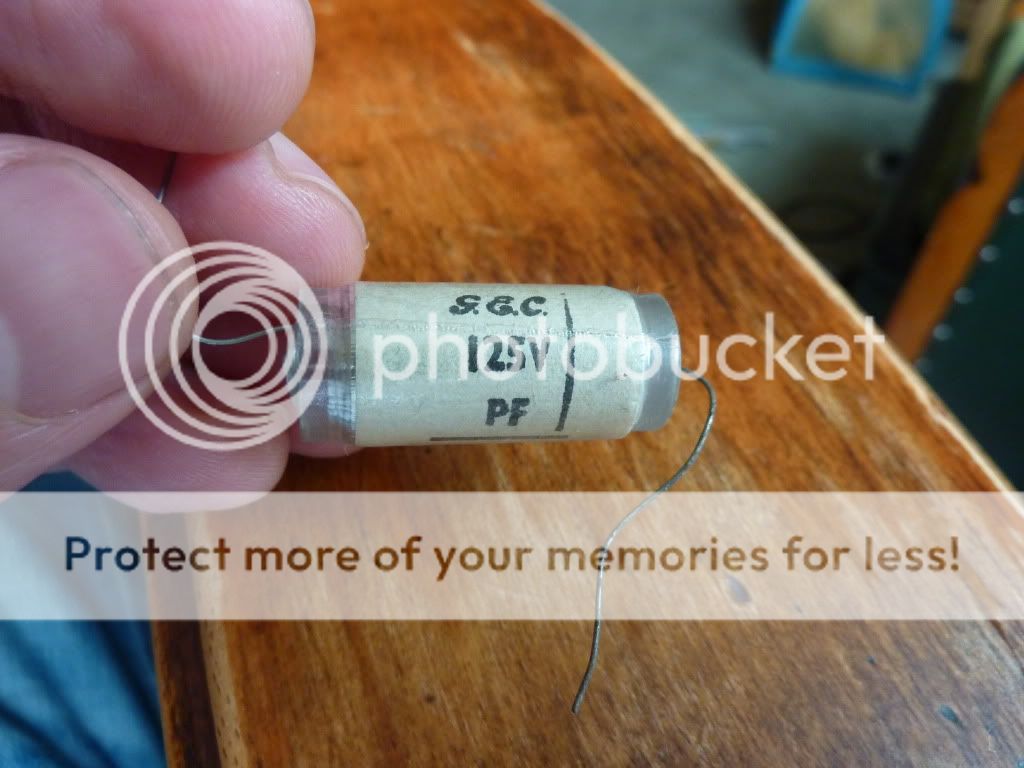Our school has had a whole load of electronic components donated, but I'm not sure what all of them are...or what we could use them for. I'm a Chemist, so I only understand electronics in terms of electrons moving through wires!
I would like to encourage students to start making their own electronic devices (e.g. headphone amps, or guitar pedals etc.) and I was wondering if there is anything we could make from these types of components.
Here are a couple of general shots to show what we have. If anyone is willing to help, then I could post more detailed photos. There are a whole load of exciting looking capacitors (sprague and GEC polymer film), resistors, relays, pots etc.
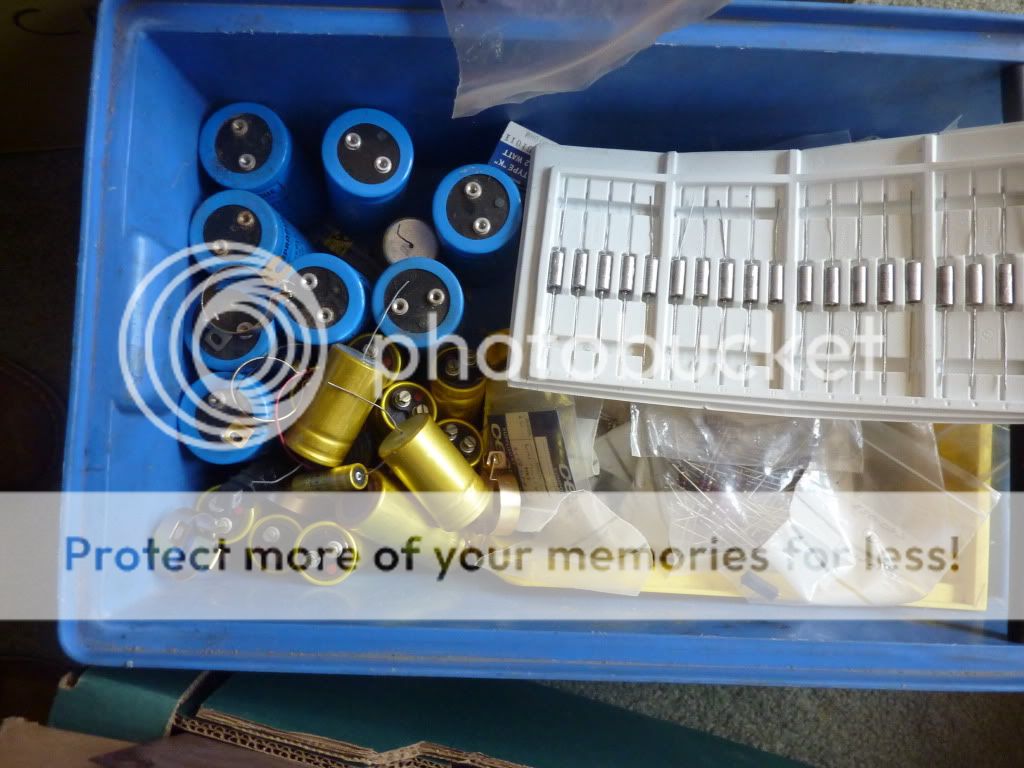

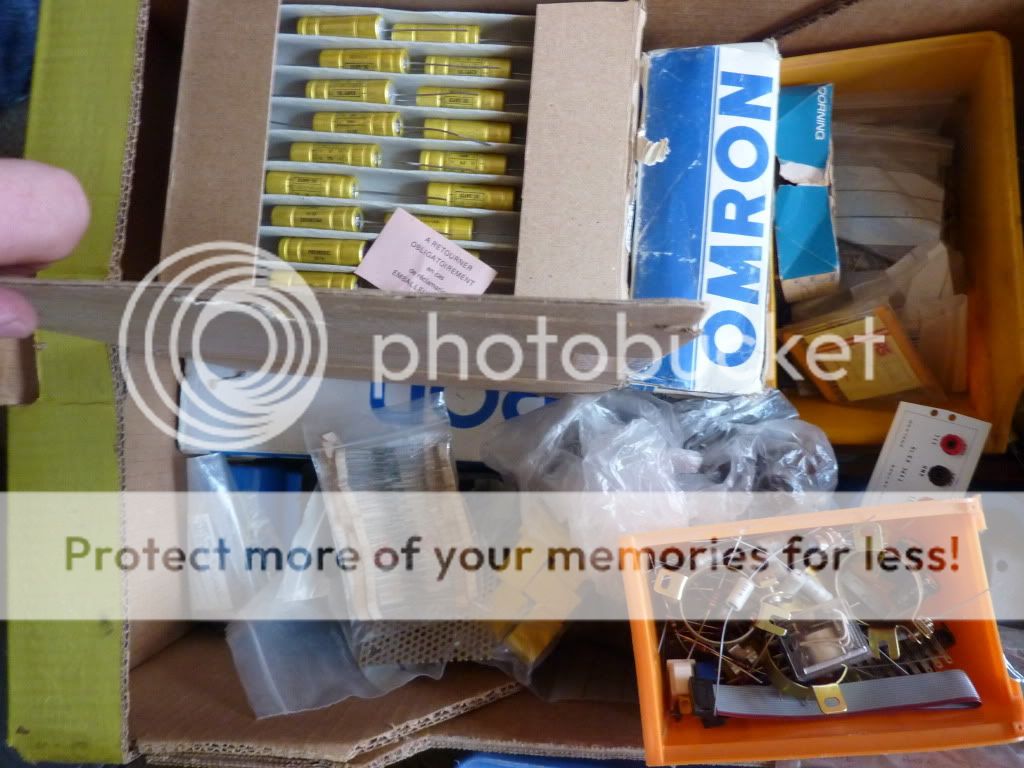
and then loads of ICs that I have no idea what they do
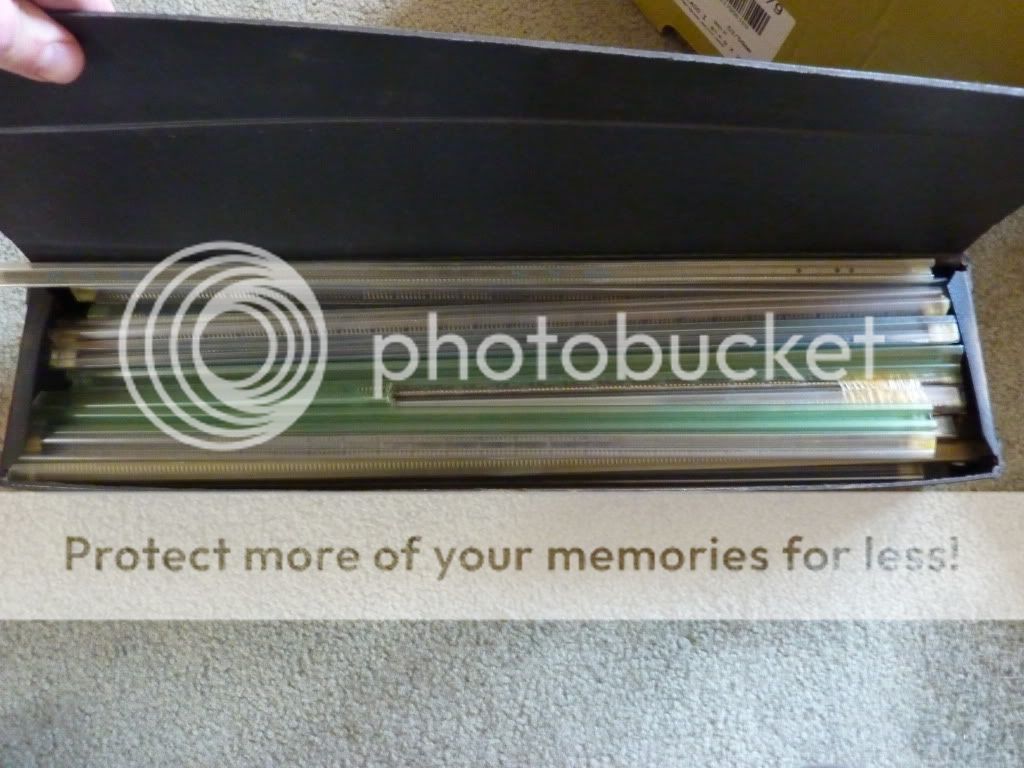
Here's an example, but there are lots of different types
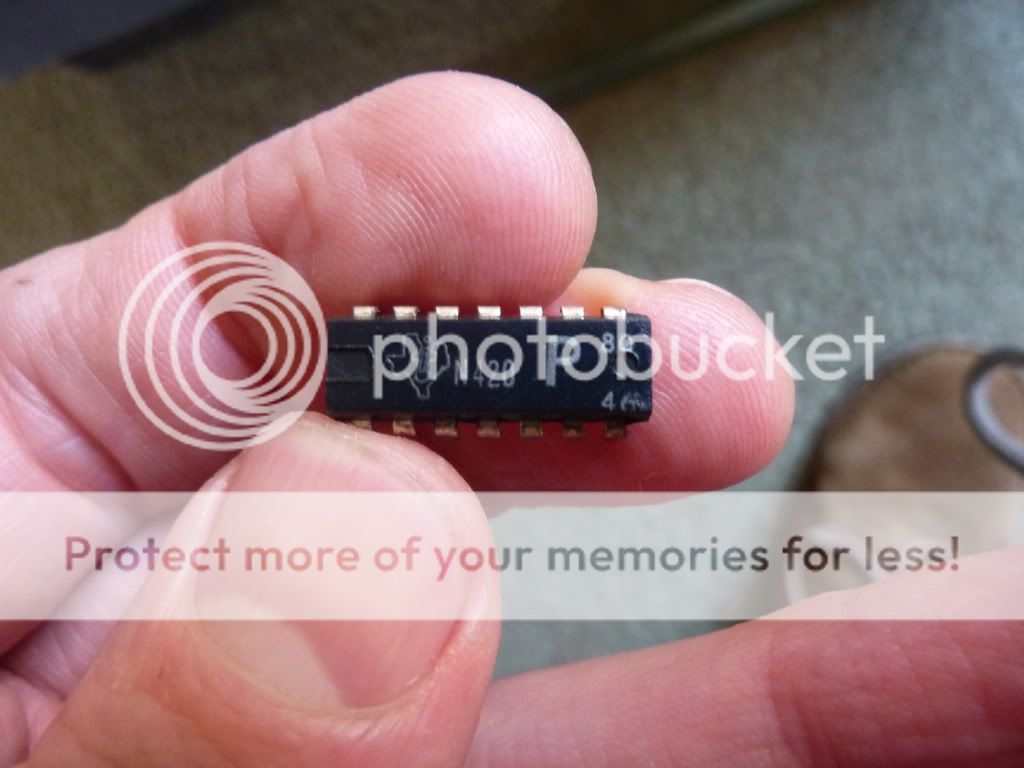
Mods - If this is not an appropriate post for this forum, then please feel free to move or delete it.
I would like to encourage students to start making their own electronic devices (e.g. headphone amps, or guitar pedals etc.) and I was wondering if there is anything we could make from these types of components.
Here are a couple of general shots to show what we have. If anyone is willing to help, then I could post more detailed photos. There are a whole load of exciting looking capacitors (sprague and GEC polymer film), resistors, relays, pots etc.



and then loads of ICs that I have no idea what they do

Here's an example, but there are lots of different types

Mods - If this is not an appropriate post for this forum, then please feel free to move or delete it.
Hi,
It very much depends on what chips you have, they could be logic chips,
not analogue. If they are cmos that is not the way to handle them.
In the same vein much of the larger capacitors you seem to have would
suit higher power circuitry than typical op-amp type circuits, and for
these you would need suitable transformers, casework, heatsinks etc.
Thats not mentioning regarding the mains you need to know your onions.
rgds, sreten.
It very much depends on what chips you have, they could be logic chips,
not analogue. If they are cmos that is not the way to handle them.
In the same vein much of the larger capacitors you seem to have would
suit higher power circuitry than typical op-amp type circuits, and for
these you would need suitable transformers, casework, heatsinks etc.
Thats not mentioning regarding the mains you need to know your onions.
rgds, sreten.
Thanks for your reply. I guessed the big capacitors wouldn't be very useful (though we can use them for lab demos). I have a feeling that the chips are something to do with logic gates, there was this note with some of them:
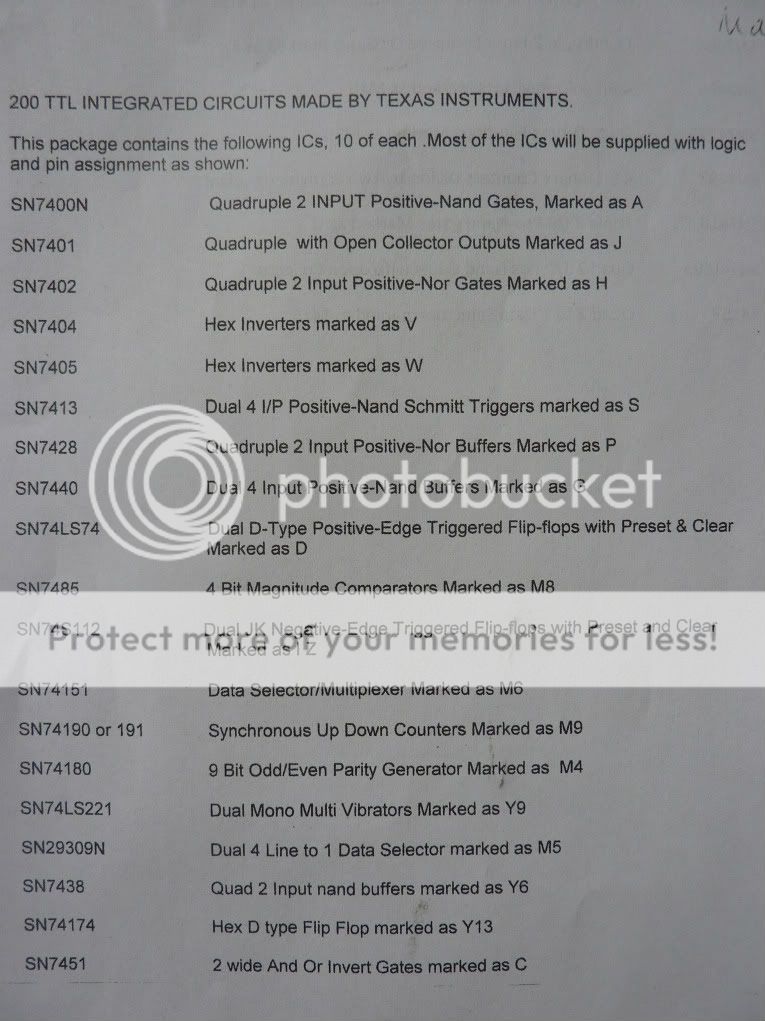
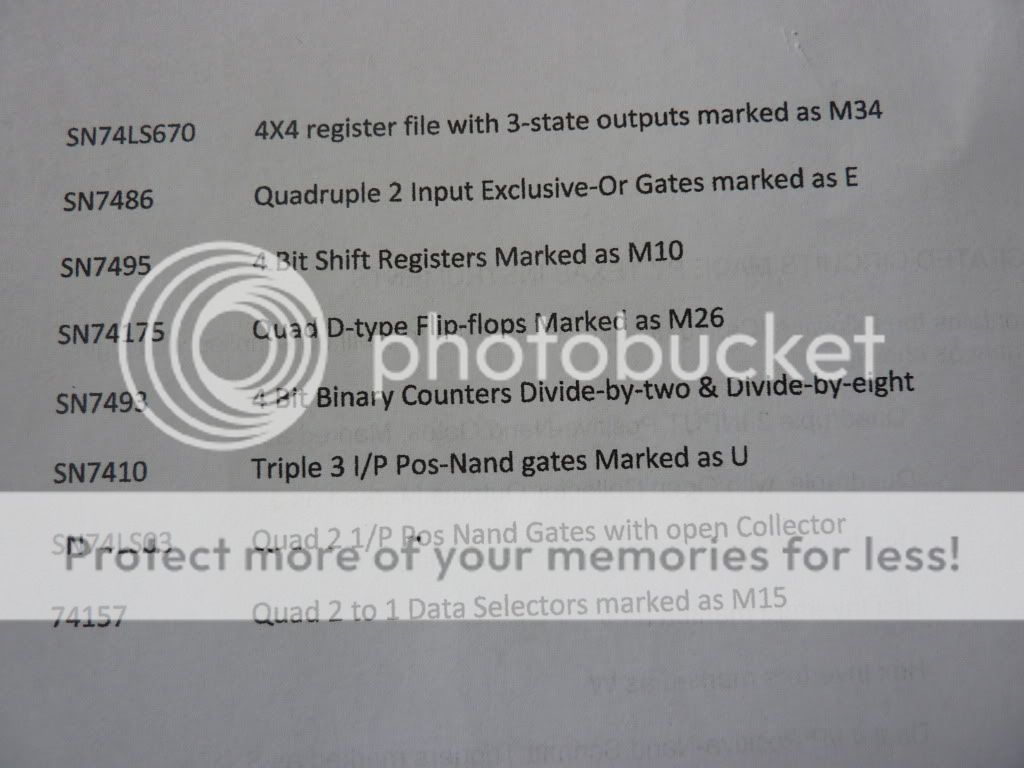
Could we set up demo logic gates with these? They are a part of the GCSE syllabus.


Could we set up demo logic gates with these? They are a part of the GCSE syllabus.
Hi,
TBH you'd be far better off using a free circuit simulator such as TinaTi
with a PC than using real chips, real circuits, real power supplies and
real oscilloscopes, analysers etc (and killing most of the chips).
From my EEE days (30 years ago) I recognise the descriptions of most
of the chips you have, I know what they are, but I don't think many
of them are particularly relevant to a modern O level syllabus.
Certainly suit an electronics club, GCSE coursework I'm not so sure.
rgds, sreten.
TinaTi is a great simulator IMO, some very nice virtual instruments.
IMO its far better for learning how to build and test simple circuits,
it just doesn't have capability of letting you blow up stuff ........
TBH you'd be far better off using a free circuit simulator such as TinaTi
with a PC than using real chips, real circuits, real power supplies and
real oscilloscopes, analysers etc (and killing most of the chips).
From my EEE days (30 years ago) I recognise the descriptions of most
of the chips you have, I know what they are, but I don't think many
of them are particularly relevant to a modern O level syllabus.
Certainly suit an electronics club, GCSE coursework I'm not so sure.
rgds, sreten.
TinaTi is a great simulator IMO, some very nice virtual instruments.
IMO its far better for learning how to build and test simple circuits,
it just doesn't have capability of letting you blow up stuff ........
Last edited:
Hi,
TinaTi is a great simulator IMO, some very nice virtual instruments.
IMO its far better for learning how to build and test simple circuits,
it just doesn't have capability of letting you blow up stuff ........
As a Chemist, not being able to blow stuff up is a real drawback!
Thanks for your help, I'll check TinaTi out.
Mike
One last question...
Do you know what these capacitors are? They have a transparent plastic body and a coiled metal / plastic swiss roll arrangement inside. Any idea what value they are supposed to be?
Hi Mike - Looks like a good opportunity to get the students familiar with some measurement equipment. With components as old as you have you would really should check the values to confirm they are still good - esp. the electrolytic caps.
The IC's take me back to designing digital circuits back in the 70's - so making anything with them might be useful in showing the students just how far we have come - and of course might be good for a couple of smoke test plus figuring out where you screwed up the hardwired logic.
Do you know what these capacitors are? They have a transparent plastic body and a coiled metal / plastic swiss roll arrangement inside. Any idea what value they are supposed to be?
Hi Mike - Looks like a good opportunity to get the students familiar with some measurement equipment. With components as old as you have you would really should check the values to confirm they are still good - esp. the electrolytic caps.
The IC's take me back to designing digital circuits back in the 70's - so making anything with them might be useful in showing the students just how far we have come - and of course might be good for a couple of smoke test plus figuring out where you screwed up the hardwired logic.
These are polystyrene capacitors, also known as "styroflex", in this case 44.6nF.One last question...
Do you know what these capacitors are? They have a transparent plastic body and a coiled metal / plastic swiss roll arrangement inside. Any idea what value they are supposed to be?
They are generally good quality, precision caps.
What transistors are you talking about?The transistors are about as confusing as it gets.
I didn't see any in your lot.
What transistors are you talking about?
I didn't see any in your lot.
There are some old (germanium?) ones:
Mullard OC71, OA10, OAZ204, OC202, OC205, OAZ206, OAZ204, OC72, OC42, OC200, OC83, OC81, OC77.
And some others:
AC153, BC115 or SN2905
I've got a feeling that the germanium ones were used in old guitar fuzz pedals, which is one of the applications I'm interested in.
OC's are indeed transistors, and they are invaluable for vintage-oriented people.There are some old (germanium?) ones:
Mullard OC71, OA10, OAZ204, OC202, OC205, OAZ206, OAZ204, OC72, OC42, OC200, OC83, OC81, OC77.
And some others:
AC153, BC115 or SN2905
I've got a feeling that the germanium ones were used in old guitar fuzz pedals, which is one of the applications I'm interested in.
I think OC20x are early silicon types, but still manufactured using the old alloy process.
Technically rather inferior, but historically significant.
OA's are diodes OAZ's are zeners.
AC153 is a more recent germanium transistor, BC115 is an early model of relatively modern silicon transistor.
I have no clue about the SN2905. Perhaps an early and very simple linear IC from Texas.
There are 200 DC relays and 10 x 50V AC relays. Not sure I'll ever find a use for them.
Hi,
They are the sort of thing logic chips can switch to control higher powers
and voltages. Just treat the ratings as maximum, not as recommended.
rgds, sreten.
I have no clue about the SN2905. Perhaps an early and very simple linear IC from Texas.
I'm thinking that could be a 2N2905 ?
- Status
- This old topic is closed. If you want to reopen this topic, contact a moderator using the "Report Post" button.
- Home
- Design & Build
- Parts
- Help - component ID and suggestions
